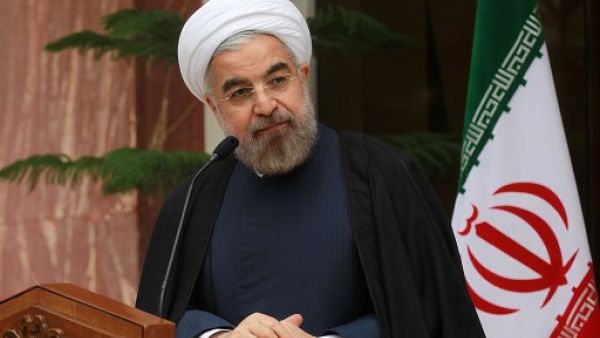Iran's President Hassan Rouhani said Thursday relations with Europe would be normalized once an interim nuclear accord is implemented.
The Iranian leader took center stage at the Davos World Economic Forum Thursday, as he seeks to drum up investment for his sanctions-hit economy amid thawing relations with the West.
Rouhani leads a delegation that includes Foreign Minister Mohammed Javad Zarif and Oil Minister Bijan Zanganeh to the snow-covered Swiss ski resort as Iran bids to come out of the diplomatic cold.
The Davos meeting, which brings together 2,500 of the world's business and political elite, is an important opportunity for Iran "for both economic reasons as well as explaining our political views," the official IRNA news agency quoted him as saying.
The focus of the summit, which 40 world leaders are slated to attend, shifts to the powder keg of the Middle East on Thursday with Israel Prime Minister Benjamin Netanyahu also expected to address delegates just hours after Rohani.
Officials have played down the chances of a meeting between the pair but stranger things have happened in the cushy corridors of Davos, where world leaders mingle freely with celebs, CEOs and ministers in a more relaxed atmosphere than usual summits.
Rouhani himself announced on Twitter that he was to have bilateral meetings with officials from other countries.
In a telling symbol of the unique nature of the Davos summit's ability to bring foes together, the official jets of Iran and Israel were photographed together at Zurich airport as the leaders headed up the slopes.
The bloody civil war in Syria is bound to feature heavily in discussions, with peace talks between the Damascus government and opposition taking place nearby in the Swiss town of Montreux.
Before making the trip to Davos, Rouhani said the Syria talks, known as Geneva II, were doomed to fail.
"All the signs show that we cannot have much hope that the Geneva II conference will find a solution to the problems of the Syrian people and the fight against terrorism," the Mehr news agency quoted him as saying.
Tehran has staunchly supported the government of President Bashar Al Assad during the conflict that began in 2011 and is estimated to have left more than 100,000 people dead.
The United Nations, which is sponsoring the Montreux talks, abruptly withdrew its invitation to Iran to attend after Tehran refused to back calls for a transitional government to put an end to the bloodshed.
Conflict in the region will undoubtedly be the focus of the speech by Egypt's interim prime minister Hazem Al Beblawi who is due to brief Davos on "the developments shaping Egypt's political and economic agenda during its current transition."








